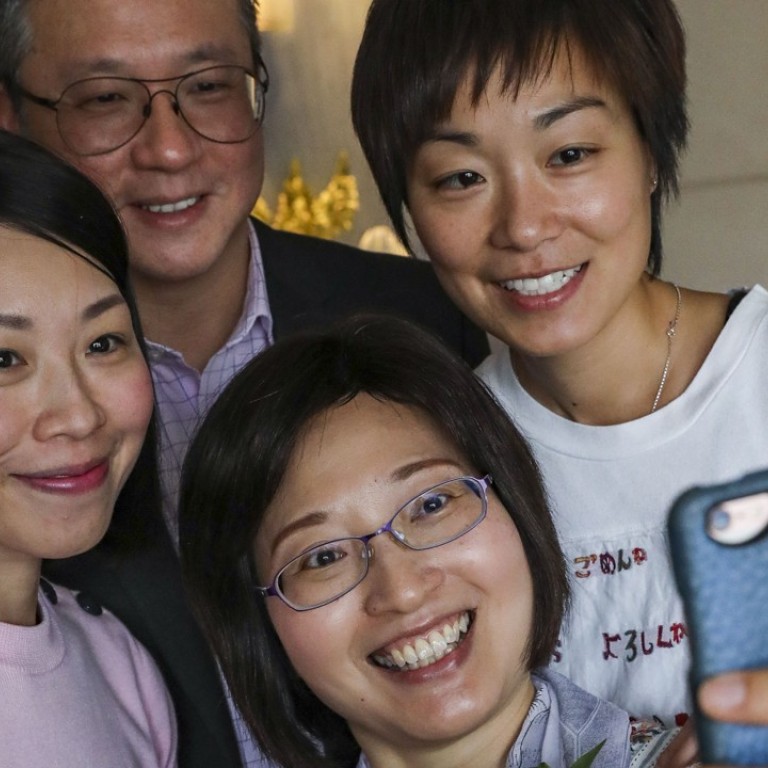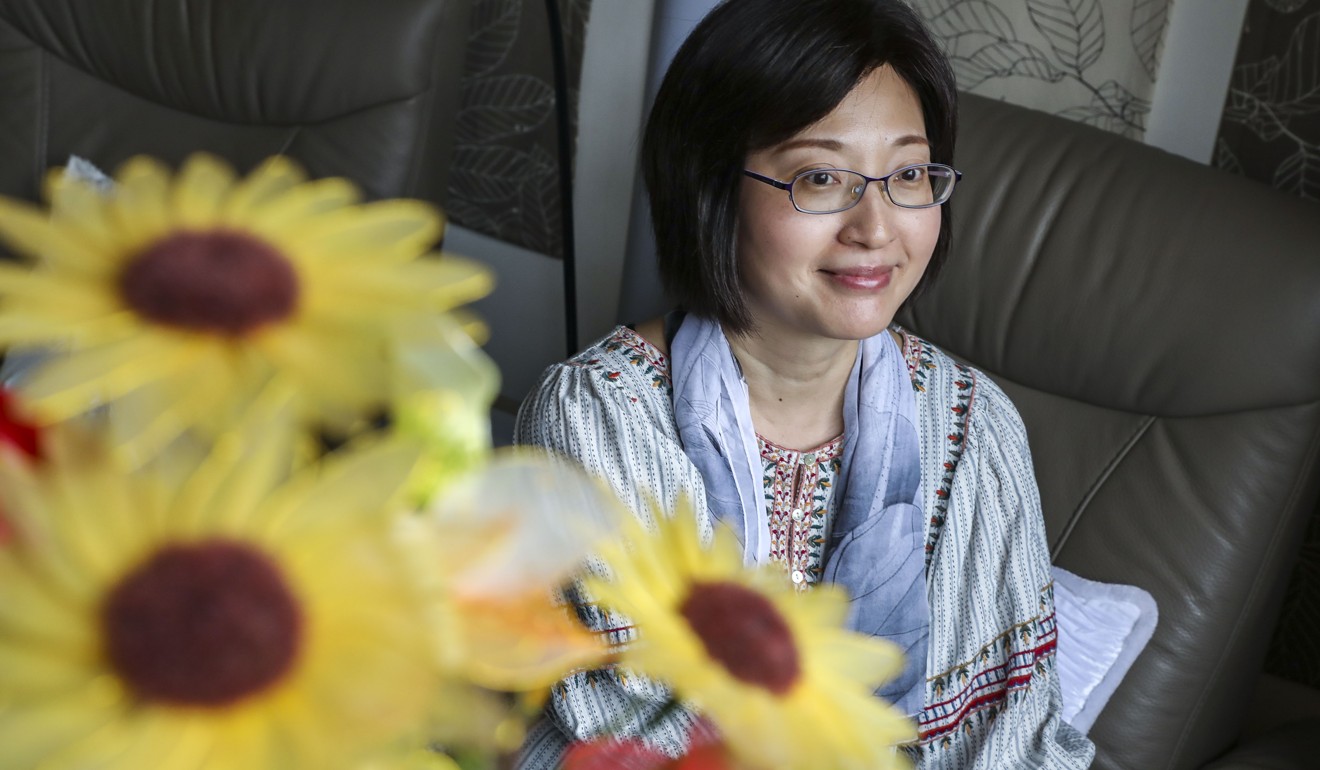
Can Hong Kong embrace a new way to fight cancer? Try the multidisciplinary approach, experts say
- Method is uncommon locally but may be more cost-effective and beneficial for both patients and doctors
- It involves nurses and doctors collaborating on single case for overall well-being of patient
Angel Wong Yeuk-sze, 48, was on the phone with her doctor when she froze mid-conversation as news of her diagnosis hit her – it was cancer.
“I was silent for so long that he thought I’d hung up on him,” recalls the project manager, who about one year ago, was told she had stage one breast cancer.
Although her condition was in its early stages, her cancer was HER2-positive, said to be the most aggressive form of breast cancer. This meant unlike many early-stage breast cancer victims, who may only need a few rounds of treatment, Wong had to go through multiple procedures, including having her tumour surgically removed. She received chemotherapy, electrotherapy, targeted therapy and hormone therapy.

Various health care professionals, from surgeons to doctors and breast care nurses, were involved in her treatment. Some stages in Wong’s fight came under a multidisciplinary approach – which is uncommon in Hong Kong – and it was through experiencing part of this that she realised how the whole process could have been even more holistic.
A typical breast cancer multidisciplinary team (MDT) includes oncologists, a breast surgeon, pathologist, radiologist, breast care nurse, medical social worker and physiotherapist.
Call for universal breast cancer screening as study shows most cases not hereditary
The medical experts will meet to discuss and review treatment plans for every patient, while the nurse and social worker sit in on these talks to help evaluate the psychological and financial impact of the treatments on patients.
Wong did not start out with an MDT in her gruelling journey to battle cancer. For her, surgery was the easy part, but then came chemotherapy, which took its toll on her. “I went to five oncologists who all had different opinions on how many cycles of chemotherapy I needed,” Wong says. “I settled for the average: six.”

From there, it was a roller-coaster ride: the following five months saw Wong losing her appetite, her hair, and sleep.
“I was so bloated, I couldn’t sleep,” she says. Chemotherapy can sometimes cause the premature onset of menopause and related symptoms, such as hot flushes. This was what happened to Wong, who broke out in sweat every night.
She also experienced skin allergies as a reaction to chemotherapy. Her skin problems were exacerbated by electrotherapy – she experienced peeling and itching skin in the area of treatment.
Wong says her religion, Catholicism, had a large part to play in helping her overcome her ordeal. She also found comfort in her breast care nurses, whom she calls “angels”.
Many lung and breast cancers ‘don’t need chemotherapy for sufferers to live longer’
“They helped me deal with hair loss, manage pain, soothe skin irritations, boost my energy and immunity, and connect with other women who’ve been through the same thing,” Wong says. “I’m so grateful for their advice and encouragement.”
Wong’s breast surgeon, Dr Marcus Ying Wai-leung, a specialist in general surgery at Chiron Healthcare, says his patients often turn to the breast care nurses on his team for counselling and support.
“Breast care nurses are here to offer help every step of the way in a patient’s cancer journey,” Ying explains. “From bra-fitting, nutritional advice, relief for side effects, tips on where to get wigs, to following up on tests and scans, they’re always there for the patient.”
“As doctors, we can’t be too emotionally attached as we have to remain objective, but nurses can,” adds Ying, likening the nurses’ role to that of customer relations specialists, and surgeons to that of technical support.
As doctors, we can’t be too emotionally attached as we have to remain objective, but nurses can
The collaboration between a breast surgeon and a breast care nurse is one example of how medical experts can work together if they are part of an MDT.
Dr Janice Tsang Wing-hang, a specialist in medical oncology, says despite the obvious benefits to patients, the concept of an MDT is relatively new in Hong Kong.
“Patients can enjoy equal input from all specialists, and feel more secure about their options because they’ve been reviewed by experts in the field,” Tsang explains. “Consultations will also be more efficient because doctors won’t have to ask around for a patient’s latest update.”
This could help prevent situations like the one Wong faced, in which she had to consult five different oncologists before arriving at the best chemotherapy treatment plan.
Tsang believes being in an MDT will also provide inexperienced doctors with guidance, and keep experienced ones up to speed with the latest medical advances when the team meets to discuss patient cases.
She says MDTs are more cost-effective as they allow patients to obtain advice from all the experts working on their case at one go, instead of going from doctor to doctor.
Tsang notes, however, that there may not be enough doctors in Hong Kong to form successful MDTs.
“Many doctors here are just too busy with their own patients to take time out to work on an MDT,” Tsang says. “When you’re part of such a team, you have to do a lot of preparatory work ahead of each meeting. It takes compassion, and dedication.”
Two big myths about breast cancer – and what Hong Kong women need to know
In the meantime, to help prevent breast cancer, Tsang advises people to exercise five days a week for 45 minutes at a time, and go to bed before 11pm. She believes stress reduction is also important. A recent study by the Hong Kong Breast Cancer Foundation found that women who reported feeling high levels of stress were 2.4 times more likely to develop breast cancer.
“Pretty much every time I ask a breast-cancer patient if she’d experienced any form of stress over the past 12 to 18 months, I get a ‘yes’,” Tsang says.
Wong was no exception. Six months before being diagnosed with cancer, she developed anxiety disorder, partly as a result of work-related stress.
“I used to be very particular about everything, and I was a worrier,” she says. “Now that I’ve been given a second life, I make sure to live every day to the fullest – and not to sweat the small stuff.”

